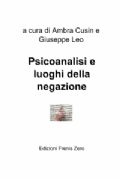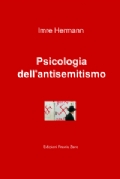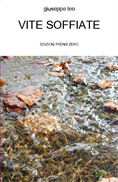|
Bibliografia
1.
Schiff ND: Global disorders of consciousness. In
The Blackwell Companion to Consciousness. Edited by
Velmans M, Schneider S. Oxford, UK: Blackwell Publishing;
2007:589-604.

2.
Watt DF, Pincus DI: Neural substrates of
consciousness: Implications for clinical psychiatry. In Textbook
of Biological Psychiatry. Edited by Panksepp J. New York:
Wiley; 2004:75-110.
![OpenURL]()
3.
Velmans M, Schneider S, eds: The Blackwell Companion to
Consciusness. Oxford, UK: Blackwell Publishing; 2007.
![OpenURL]()
4.
Panksepp J: Affective consciousness and the
instinctual motor system: the neural sources of sadness and joy. In
The Caldron of Consciousness: Motivation, Affect and
Self-organization, Advances in Consciousness Research. Edited
by Ellis R, Newton N. Amsterdam: John Benjamins Pub. Co; 27-54.
![OpenURL]()
5.
Arnould M, Vigouroux R, Vigouroux M: Etats
frontiers entre la vie et la mort en neuron-tramatologie. Neurochirurgica (Stuttg)
1963, 6:1-21.
![OpenURL]()
6.
Plum F, Posner J: The Diagnosis of Stupor and Coma.
Philadelphia: FA Davis; 1982.
![OpenURL]()
7.
Multi-Society Task Force on PVS: Medical aspects of
the persistent vegetative state. N Engl J Med 1994, 330:1572-1579.
PubMed Abstract
| Publisher Full Text
![OpenURL]()
8.
Kinney HC, Samuels MA: Neuropathology of the
persistent vegetative state: A review. J Neuropathol Exp Neurol
1994, 53:548-558. PubMed Abstract
![OpenURL]()
9.
Kampfl A, Schmutzhard E, Franz G, Pfausler B, Haring HP,
Ulmer H, Felber S, Golaszewski S, Alchner F: The
persistent vegetative state after closed injury: clinical and
magnetic resonance imaging findings in 42 patients. J Neurosurg 1998, 88:809-816.
PubMed Abstract
![OpenURL]()
10. Graham
DI, Adams JH, Murray LS, Jennett B: Neuropathology of the
vegetative state after head injury. Neuropsychol Rehabil 2005, 15:198-213.
PubMed Abstract
| Publisher Full Text

11. Giazino
J, Whyte J: The vegetative and minimally conscious states:
Current Knwoledge and remaining questions. J Head Trauma Rehabil 2005,
20:30-50. PubMed Abstract
| Publisher Full Text

12. Graham
DI, Maxwell WL, Adams JH, Jennett B: Novel aspects of the
neuropathology of the vegetative state after blunt head injury. Prog Brain Res 2005, 150:445-455.
PubMed Abstract
| Publisher Full Text
![OpenURL]()
13. Parvizi
J, Damasio A: Consciousness and the brainstem. Cognition 2001, 79:135-160.
PubMed Abstract
| Publisher Full Text
![OpenURL]()
14. Sauvé
K: Gamma-Band synchronous oscillations: Recent evidence
regarding their functional significance. Conscious Cogn 1999, 8:213-224.
PubMed Abstract
| Publisher Full Text
![OpenURL]()
15. Brenner
RP: The interpretation of the EEG of stupor and coma. Neurologist 2005, 11:271-284.
PubMed Abstract
| Publisher Full Text
![OpenURL]()
16. Kotchoubey
B, Lang S, Mezger G, Schmalohr D, Schneck M, Semmler A, Bostanov
V, Birbaumer N: Information Processing in severe disorders
of consciousness: Vegetative state and minimally conscious state. Clin Neurophysiol 2005, 116:2441-2453.
PubMed Abstract
| Publisher Full Text
![OpenURL]()
17. Balazs
S, Stepan C, Binder H, von Gizycki H, Avitable M, Obersteiner A,
Rattay F, Selesnick I, Bodis-Wollner I: Conjugate eye
movements and gamma power modulation of the EEG in persistent
vegetative state. J Neurol Sci 2006, 246:65-69.
PubMed Abstract
| Publisher Full Text
![OpenURL]()
18. Machado
C, Korein J, Aubert E, Bosch J, Alvarez MA, Rodriguez R, Valdes P,
Portela L, Garcia M, Perez N, Chinchilla M, Machado Y, Machado Y: Recognizing
a mother's voice in the persistent vegetative state. Clin EEG Neurosci 2007, 38:124-6.
PubMed Abstract
![OpenURL]()
19. Isono
M, Wakabayashi Y, Fujiki M, Kamida T, Kobayashi H: Sleep
cycle in patients in a state of permanent unconsciousness. Brain Inj 2002, 16:705-712.
PubMed Abstract
| Publisher Full Text
![OpenURL]()
20. Oksenberg
A, Gordon C, Arons E, Sazbon L: Phasic activities of rapid
eye movement sleep in vegetative state patients. Sleep 2001, 24:703-706.
PubMed Abstract
![OpenURL]()
21. Perrin
F, Schnakers C, Schabus M, Degueldre C, Goldman S, Bredart S,
Faymonville ME, Lamy M, Moonen G, Luxen A, Maquet P, Laureys S: Brain
response to one's own name in vegetative state, minimally
conscious state, and locked-in syndrome. Arch Neurol 2006, 63:562-569.
PubMed Abstract
| Publisher Full Text
![OpenURL]()
22. Wijnen
VJM, van Boxtel GJM, Eilander HJ, de Gelder B: Mismatch
negativity predicts recovery from the vegetative state. Clin Neurophysiol 2007, 118:597-605.
PubMed Abstract
| Publisher Full Text
![OpenURL]()
23. Kotchoubey
B: Event-related potentials predict the outcome of the
vegetative state. Clin Neurophysiol 2007, 118:477-479.
PubMed Abstract
| Publisher Full Text
![OpenURL]()
24. Daltrozzo
J, Wioland N, Mutschler V, Kotchoubey B: Predicting coma
and other low responsive patients outcome using event-related
brain potentials: a meta-analysis. Clinic Neurophysio 2007, 118:606-614.
Publisher Full Text
![OpenURL]()
25. Katayama
Y, Takashi T, Takamitsu Y, Teruyasu H, Shuhei M, Seigou K: Characterization
and modification of brain activity with deep brain stimulation in
patients in a persistent vegetative stat: pain-related late
positive component of cerebral evoked potential. PACE 1991, 14:116-121.
PubMed Abstract
![OpenURL]()
26. Giacino
JT, Hirsch J, Schiff N, Laureys S: Functional neuroimaging
applications for assessment and rehabilitation planning in
patients with disorders of consciousness. Arch Phys Med Rehabil 2006,
87(12 Suppl 1):S67-76. PubMed Abstract
| Publisher Full Text
![OpenURL]()
27. Laureys
S, Goldman S, Phillips C, Van Bogaert P, Aerts J, Luxen A, Franck
G, Maquet P: Impaired effective cortical connectivity in
vegetative state: Preliminary investigation using PET. Neuroimage 1999, 9:377-382.
PubMed Abstract
| Publisher Full Text
![OpenURL]()
28. Schiff
ND: Modeling the minimally conscious state: measurements
of brain function and therapeutic possibilities. Prog Brain Res 2005, 150:473-493.
PubMed Abstract
| Publisher Full Text
![OpenURL]()
29. Laureys
S, Faymonville ME, Peigneux P, Damas P, Lambermont B, Del Fiore G,
Degueldre C, Aerts J, Luxen A, Franck G, Lamy M, Moonen G, Maquet
P: Cortical processing of noxious somatosensory stimuli in
the persistent vegetative state. Neuroimage 2002, 17:732-741.
PubMed Abstract
| Publisher Full Text
![OpenURL]()
30. Kotchoubey
B, Jetter U, Lang S, Semmler A, Mezger G, Schmalohr D, Schneck M,
Birbaumer N: Evidence of cortical learning in vegetative
state. J Neurol 2006, 253:1374-1376.
PubMed Abstract
| Publisher Full Text
![OpenURL]()
31. Owen
AM, Coleman MR, Boly M, Davis MH, Laureys S, Pickard JD: Detecting
awareness in the vegetative state. Science 2006, 313:1402-1402.
PubMed Abstract
| Publisher Full Text
![OpenURL]()
32. Nachev
P, Husain M: Comment on "Detecting awareness in the
vegetative state". Science 2007, 315:1221.
PubMed Abstract
| Publisher Full Text
![OpenURL]()
33. Fins
J, Shiff ND: Shades of gray: new insights into the
vegetative state. Hastings Cent Rep 2006, 36:8.
PubMed Abstract
| Publisher Full Text
![OpenURL]()
34. Panksepp
J: Affective Neuroscience, The Foundations of Human and Animal
Emotions. New York: Oxford University Press; 1998.
![OpenURL]()
35. Panksepp
J: Affective consciousness: Core emotional feelings in
animals and humans. Conscious Cogn 2005, 14:30-80.
PubMed Abstract
| Publisher Full Text
![OpenURL]()
36. Denton
D: The Primordial Emotions: the Dawning of Consciousness.
New York: Oxford University Press; 2006.
![OpenURL]()
37. Panksepp
J: The periconscious substrates of consciousness:
Affective states and the evolutionary origins of the SELF.
J Consciousness Stud 1998, 5:566-582.
![OpenURL]()
38. Panksepp
J, Normansell LA, Cox JKF, Siviy S: Effects of neonatal
decortication on the social play of juvenile rats. Physiology & Behavior
1994, 56:429-443. PubMed Abstract
| Publisher Full Text
![OpenURL]()
39. Merker
B: Consciousness without a cerebral cortex: A challenge
for neuroscience and medicine. Behav Brain Sci 2007, 30:63-81.
PubMed Abstract
| Publisher Full Text
![OpenURL]()
40. Shewmon
DA, Holmes GL, Byrne PA: Consciousness in congenitally
decorticate children: developmental vegetative state as
self-fulfilling prophecy. Dev Med Child Neurol 1999, 41:364-374.
PubMed Abstract
| Publisher Full Text
![OpenURL]()
41. Panksepp
J: On the embodied neural nature of the core emotional
affects. J Consciousness Stud 2005, 5:158-184.
![OpenURL]()
42. LeDoux
JE: The Emotional Brain. New York: Simon & Schuster;
1996.
![OpenURL]()
43. Rolls
ET: Emotions Explained. Oxford, UK: Oxford University
Press; 2005.
![OpenURL]()
44. Liotti
M, Panksepp J: On the neural nature of human emotions and
implications for biological psychiatry. In Textbook
of Biological Psychiatry. Edited by Panksepp J. New York:
Wiley; 2004:33-74.
![OpenURL]()
45. Narvaez
D: Triune ethics: The neurobiological roots of our
multiple moralities. New Ideas Psychol, in
press.
![OpenURL]()
46. Verheijde
JL, Rady MY, McGregor J: Recovery of transplantable organs
after cardiac or circulatory death: Transforming the paradigm for
the ethics of organ donation. [http://www.peh-med.com/content/2/1/8]
webcite
Philos Ethics Humanit Med
2007., 2(8):
![OpenURL]()
47. Evans
WD: Seeking an ethical and legal way of procuring
transplantable organs from the dying without further attempts to
redefine human death. [http://www.peh-med.com/content/2/1/11]
webcite
Philos Ethics Humanit Med
2007., 2(11): PubMed Abstract
| Publisher Full Text
| PubMed Central Full Text
![OpenURL]()
48. Veatch
RM: Abandon the dead donor rule or change the definition
of death? Kennedy Inst Ethics J 2004,
14(3):261-276. PubMed Abstract
| Publisher Full Text
![OpenURL]()
49. President's
Council on Bioethics. Session 1: The draft white paper on
the determination of death. [http://www.bioethics.gov/transcripts/sept07/session1.html]
webcite
Discussion by Council Members
September 6, 2007
![OpenURL]()
|




